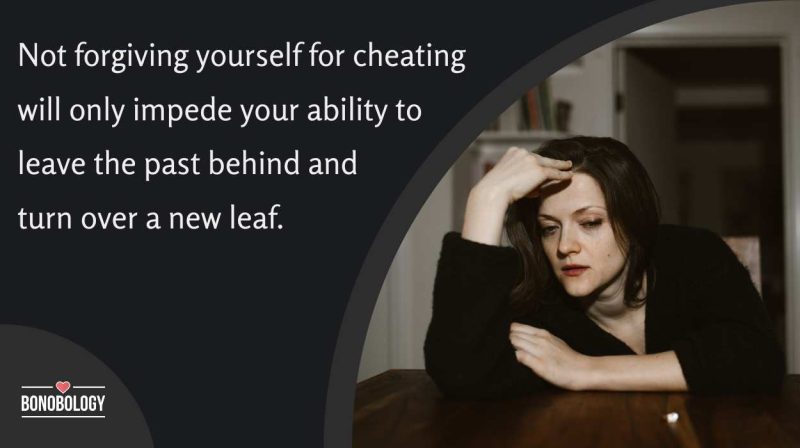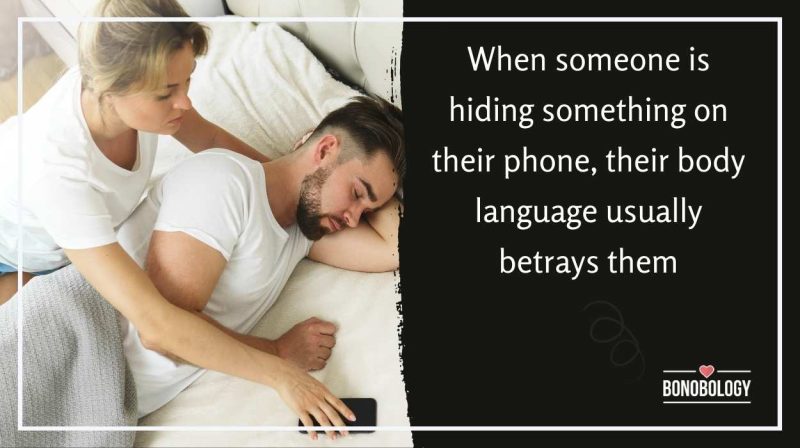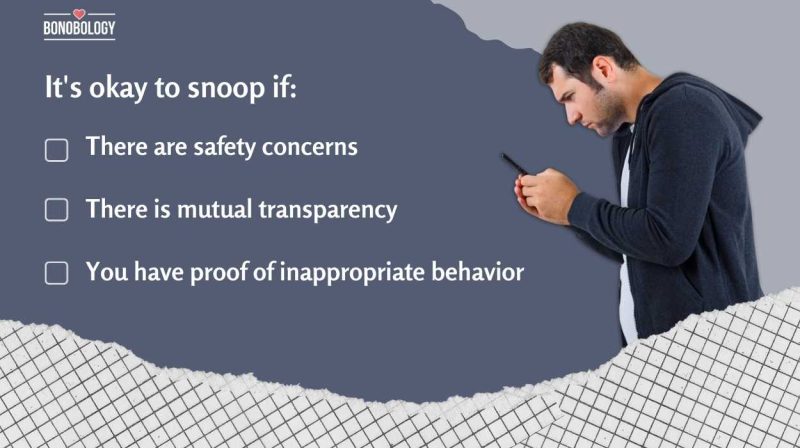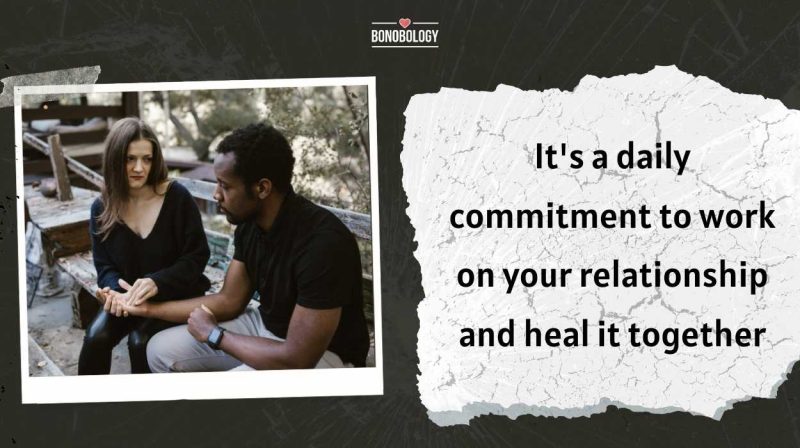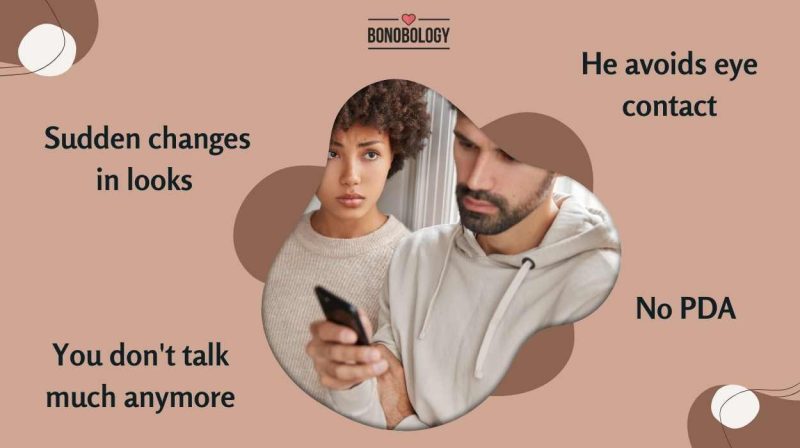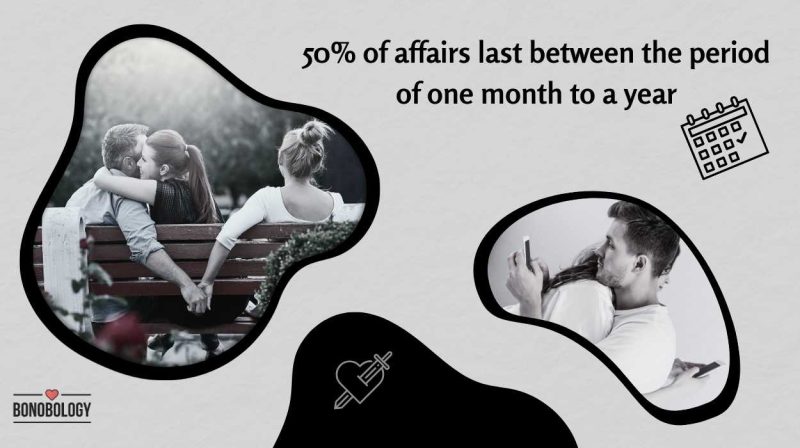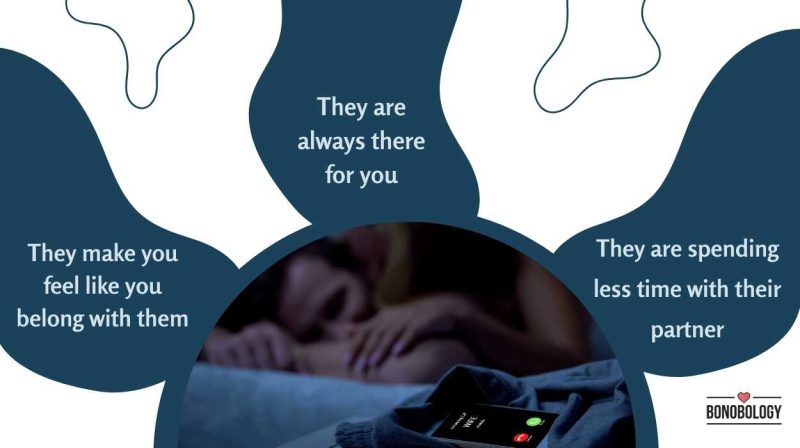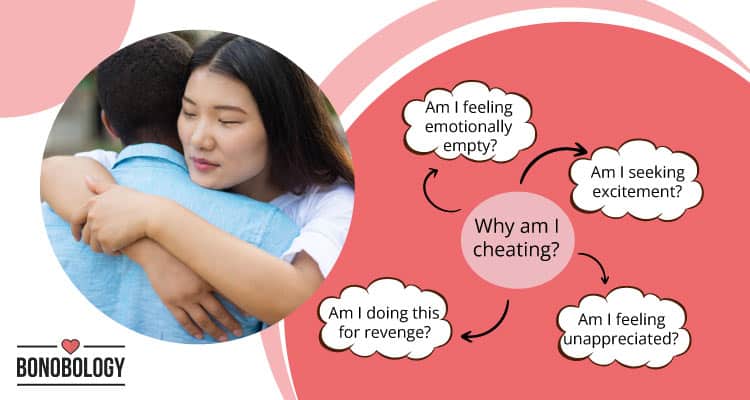There’s no such thing as the perfect relationship. Even the best of couples, with the most beautiful Instagram holiday photos, will admit to flaws and fractures in their relationship. However, the extent of damage can escalate to a whole different level when the dark shadow of infidelity befalls a relationship. Whether cheating is a deliberate, long-term occurrence or a one-off encounter, it can surely feel good in the moment but brings in its wake emotional turmoil. The question is, how do you deal with it? Do you confess to your partner and come clean? And if you don’t, do you wonder how to forgive yourself for cheating and not telling?
A study in 2020 showed that 20% of married men, and 10% of married women, admitted to cheating on their spouses. The numbers suggest that there may be many more who wouldn’t admit it, simply because confessing to adultery comes with enormous baggage — stigma, pain, anger, and the possibility of a broken marriage. And holding it all in can leave you riddled with guilt and consumed with thoughts like “I will never forgive myself for cheating”.
The question then arises, can you forgive yourself for cheating without telling and salvage your relationship? If you’ve been wrestling with the “I cheated and never told. Now I can’t live with myself” feeling, we’re here to offer some tips on self-forgiveness and moving forward in consultation with psychotherapist Gopa Khan (Masters in Counseling Psychology, M.Ed), who specializes in marriage & family counseling.
Can You Forgive Yourself For Cheating Without Telling?
Table of Contents
Before looking into how to forgive yourself for cheating and not telling, it’s important to establish whether it’s even possible to let go of the guilt and move forward. First things first, know that experiencing anxiety and guilt after cheating is perfectly normal, especially if your partner is in the dark and you have to keep up appearances that all is well in your relationship. All the while, feeling the guilt of cheating and not telling like a burden on your chest.
A friend of mine — let’s call her Sammy — ended up cheating on her husband after reconnecting with an ex. The affair went on for 5 years, and all that while she couldn’t breathe a word about it to a soul. The experience was so isolating that the symptoms of guilt after cheating began to take a toll on her. The self-loathing and shame, compounded with the fact that she couldn’t stop herself from sleeping with her ex no matter how much she resolved to sever ties, left her riddled with anxiety and pushed her to the brink of depression.
While she was able to put the affair to bed, the guilt of cheating and not telling continued to eat her up. “I cheated on my husband and never told him. Now the guilt is eating me up,” she confided in me two years after ending the affair. By this point, she had been in therapy long enough, so I asked her what her therapist had to say about self-forgiveness for cheating. Turns out, she hadn’t even brought this up in therapy — such was the degree of shame and guilt she felt. And bottling up all that anxiety and guilt after cheating was making her mental health worse for wear.
I coaxed and coaxed and coaxed. Ultimately, she started talking about it in therapy and began discovering how to deal with guilt of cheating. So, if you’re wondering, “Can you cheat and never tell?” — or more importantly, “Can you forgive yourself for cheating without telling?” — know that the path to self-forgiveness won’t be easy. But with consistent effort and the right help, you can learn how to forgive yourself for cheating without telling.
To this, Gopa says, “The fact that a person is wondering about how to deal with guilt of cheating and forgive themselves is an indicator that they are remorseful of their actions. As long as the guilt stems from a place of genuine remorse and regret, it is possible to undo unhealthy patterns, replace them with healthier ones, work toward building a better relationship with one’s partner, and in the process, let go of cheaters guilt. However, if these feelings stem from a place of self-loathing and shame, then self-forgiveness for cheating can be hard to come by.”

8 Helpful Tips To Forgive Yourself After Cheating And Not Telling
Can you cheat and never tell? Yes, supposedly. Whether or not you should come clean about cheating is your choice entirely. Often, if there is a sense of security that the transgression won’t come to light, anyone would prefer to keep it from their partner. And there can be many ways a person justifies this choice to themselves.
Maybe you know your affair was a one-time thing, a one-night stand. Maybe you’ve got kids and you don’t want to subject them to a divorce or separation, or even the fights that will ensue if you confess to your partner. Perhaps you’re thinking, “I will never forgive myself for cheating, but I don’t want to break up my relationship.” Cheating and not telling is not the problem. In fact, it is the easier choice by a mile. The real problem is the guilt that begins to consume you afterward, even if you’re never caught cheating.
Susan cheated on her husband, Mark, with a coworker. The affair turned messy, with the man stomping all over Susan’s heart and walking away. Even though she couldn’t come clean to Mark, it was apparent that Susan was consumed by the symptoms of guilt after cheating. She slipped into depression after the affair ended, and it was Mark who stood by her through the ordeal. Now, she finds herself unable to shake off the “I cheated on my husband and never told him, I can never forgive myself” thought.
However, not forgiving yourself for cheating will only impede your ability to leave the past behind and turn over a new leaf. If you want to move on, regardless of whether your relationship survives or not, you need to learn how to forgive yourself for hurting your spouse when they don’t know it. So, how do you forgive yourself after being unfaithful? Read on.
Related Reading: Do Affairs That Break Up A Marriage Last?
1. Take accountability
How to forgive myself for cheating without coming clean to my partner, you wonder? Recognize that you screwed up, that your cheating was a choice you made, even if it was a one-off. Rather than thinking, “I cheated and can’t live with myself”, understand that you’ll have to. This is on you and you will need to cope with it and live with yourself every day. Yes, you need to forgive yourself for ruining your marriage or relationship, but that doesn’t mean you shrug off responsibility for what you did.
“I had a one-night stand while I was away at a conference,” says Kate, a software engineer, “I kept telling myself it was nothing and I didn’t need to tell my husband because it didn’t matter. But it kept building up inside me, and I hated myself for months afterward. I didn’t tell my husband because by then I was a mess and I didn’t think he needed to deal with knowing I had cheated. All I could think was, “I will never forgive myself for cheating.” It took me a long time to realize that messing myself up wasn’t going to help me or save my marriage. I had to face facts and move on.”
Gopa explains, “When an affair happens, whether it is emotional or physical, it is tempting to look for reasons outside one’s self for why it happened. A client of mine said that his affair happened “organically”. I asked him to explain how he could say that given that he had actively flirted despite being married, gone on dates, planned vacations, etc. Carrying out an affair needs meticulous planning and a lot of thought, so it never just happens organically or by accident.
“However, cheaters guilt can get so overbearing that often people shy away from taking responsibility and look for excuses instead. But unless you unequivocally accept that you made an enormous mistake by violating the sanctity of a committed relationship, the healing process cannot begin.”
The journey to figuring out how to forgive yourself for cheating and not telling begins with introspection, acknowledgment and acceptance of accountability. Don’t beat yourself up or sink into a black hole of guilt over your affair or one-night stand – that’s not going to help you or your partner. Acknowledge what you’ve done and what it might say about you and your relationship. Work on it, work on yourself, and hopefully look ahead.
Related Reading: The Affair Aftermath – How To Get Over Cheating Guilt
2. Write down your feelings
The answer to how to forgive yourself for cheating without telling may lie in being completely in tune with your emotional state. Writing down your feelings can help with that. It may sound a little theatrical, but it can be an effective way to kick-start the healing process without burdening your partner with the dark reality of your transgressions.
Keep a journal and spill your guilt, your anger, your sadness – let all of it out. There’s no point suppressing your feelings. If you can’t forgive yourself for ruining your marriage, write it down. When you’re in despair, and can’t forgive yourself for drunk cheating and not telling your spouse, write it down. Seeing your feelings down on paper could make things a little clearer and help you do some soul-searching about the reasons behind your transgression.
Things always seem worse when they’re in your head. Once they’re out, you can actually start tackling them rather than hiding from the truth. How to forgive yourself for cheating and not telling? Get it out of your head and into the real world as much as possible.
3. Go beyond just being sorry
“Sorry seems to be the hardest word” goes the song, but honestly, it’s just the starting point. If you’ve cheated but have decided not to tell your partner, then you can’t offer them a heartfelt sincere apology for hurting them and breaking their trust. In fact, you have to go about acting as if all is well in your relationship while you feel guilty and downright awful about what you did.This can make you wonder, “Does the guilt of cheating ever go away? If not, how do I live with myself or face my partner every day?”
It’s all very well to think, “I cheated and can’t live with myself”, but what are you doing about it? You need to spend some time in self-reflection and see what it is you need to do to ensure this situation doesn’t occur again. Sure, you can’t apologize to your partner in as many words but you can take action to redeem yourself and be a better partner.

“It is important to be sorry even if you can’t say it out loud,” stresses Gopa, “One needs to be proactive in relationships. If you want the relationship, you have to go the extra mile and take steps to actively heal the relationship. The onus lies on you solely to make amends to make the relationship better than before.
“At times, my clients ask, “I cheated and never told my partner but it’s been a few years now, do I still need to make amends?” I remind them that they will continue to feel guilty unless they face the uncomfortable feelings of regret and remorse, and work toward self-improvement.”
Related Reading: How To Get Over Cheating: 15 Sensible Ways To Close The Chapter
4. Stop punishing yourself
“Can you forgive yourself for cheating without telling? I didn’t think so,” says Adam, a banker. “I was seeing another woman for a while and never told my wife. I broke it off after a few months because I felt terrible about it. But even though I never told my wife, I was stuck in a well of self-hate for months. I just couldn’t figure out how to forgive myself for cheating. It got to a point where I would deny myself little things I liked — new shoes, playing video games, my favorite dessert.”
“It is natural to feel guilty for your actions,” Gopa concedes, “However, by punishing yourself, you end up wasting your energies, which could be used in making your relationship or marriage better. A client sought therapy as he felt guilty about cheating on his girlfriend regularly and wondered what was wrong with him. The first step was to take personal responsibility, and the second to decide whether he could choose to be faithful to his girlfriend.
“He soon realized that he did not have the bandwidth to be in a committed relationship and that it was unfair to his girlfriend. He then decided to end the relationship instead of cheating and then feeling guilty for cheating and punishing himself. The best approach is to focus on problem-solving as punishing oneself keeps you stuck and unable to move forward.”
To be able to forgive yourself for ruining your relationship by cheating on your partner, you need to practice self-compassion instead of going down the rabbit hole of self-loathing and self-blame. Atonement is great, but you’re not moving on or being a healthy partner by punishing yourself. You might think you’re cleansing yourself of your mistakes and making up for cheating, but all you’re doing is digging a deeper hole of self-hate and self-pity to marinate in. None of this will help you forgive yourself after being unfaithful, nor will it make you a better spouse or partner.
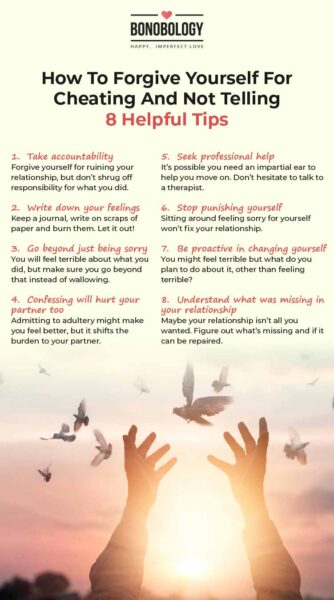
5. Seek professional help
How to forgive yourself for cheating and not telling? Seek a safe space where you can share all of that turmoil building up in your mind without any fear of judgment or blame. It’s understandable why you may feel that talking to your partner about it may not be the best idea. It could well put your relationship in jeopardy. That’s where talking to a mental health expert can be immensely cathartic.
This might be tricky without letting your partner find out. If it’s gotten to a point where you no longer want to hide from your partner, you could take a relationship break while you sort yourself out. They needn’t know you cheated, just that you’re having some issues and need time to seek help.
If there is enough space and independence in your relationship, there is no reason why you can’t begin individual therapy without explaining the details of why you need it to your partner. If you think you need to talk to a professional to find an answer to “how do I get over the guilt of cheating without telling”, help is available.
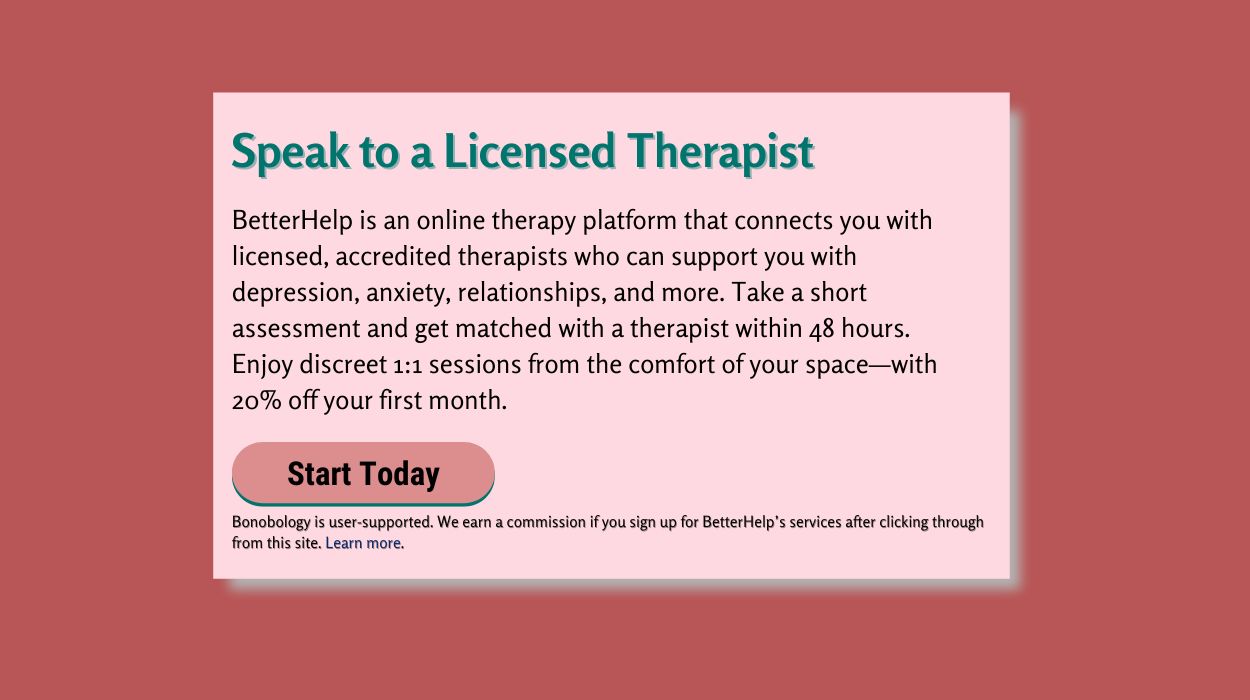
“Often,” says Gopa, “The person who has cheated feels his/ her partner needs the support. But it is very important that the partner who has cheated reflects on their actions and understands the repercussions of their behavior on people around them. Also, it helps to have a safe zone to discuss issues they were unhappy about and to assist them to also make repairs in their relationship.”
6. Confessing will hurt your partner too
When you find yourself stuck at the question, “How do I get over the guilt of cheating without telling?”, it can be tempting to lay your heart bare to your partner. Coming clean about your transgressions can be cathartic in many ways, and feel as if a burden has been lifted off you. However, bear in mind that admitting to adultery might make you feel better, but it shifts the burden to your partner.
Think about it: Do you desperately want to confess because you think it’ll ease that giant ball of guilt in your gut? Are you tired of carrying the burden alone and wondering how to forgive yourself for hurting your spouse when they don’t know it? Maybe it would be easier to forgive yourself if they knew. The thing is, making it easier for yourself isn’t really what you’re trying to achieve here.
You’re here to do the work and forgive yourself so that you can be better. If you were to confess to your partner, think about how it would make them feel. Do they deserve to carry around the trust issues and constant suspicion of being in a relationship with someone who cheated? We don’t think so.
“There is a trend that if you have cheated on your partner, you must spill the beans. Often the partner cheated on is so incredibly hurt that they want to know every detail. I had a client, who would ask her husband if the sex was better with the other person, etc. As a counselor, I draw the line at getting into intimate details, even if you need to, tell your partner the bare bones of the affair,” she adds.
Related Reading: 9 Proven Benefits Of Counseling: Don’t Suffer In Silence
7. Be proactive in changing yourself
We’ve talked about how being sorry isn’t enough here. Underline that by realizing that you need to make active, proactive steps toward changing yourself and your outlook. Maybe you’re not an altogether terrible person, maybe you’re just human and you made a mistake or several mistakes. Now you feel rotten about being a cheating husband or wife and you don’t want your relationship to be destroyed over it. So, what do you plan to do about it, other than feeling terrible?
Ken, a user research expert, says, “I had a brief affair with someone, and never told my wife about it. But, for months afterward, all I did was think about it and blame myself and feel bad. But that was it. I wasn’t doing anything about it other than wallow in shame, followed by self-pity, and constantly questioning, “Does the guilt of cheating ever go away?” As a result, my guilt transformed into resentment and anger toward my wife. Not only had I been a cheating husband, but I was now also a truly terrible partner.”
We reiterate here, you need to do the work. If you’ve always had a roving eye, make a decision to choose your marriage every day, rather than hurt your spouse and family. Cut ties with the person you were involved with and practice the no-contact rule in true earnest. Remind yourself that you’re lucky to have a great partner and that you’ve built a connection and life with them. To remain a part of that, you need to be better.
Gopa elaborates, “Being invested in a relationship means one needs to work on their end of the relationship. Every relationship comes with challenges. If, post cheating, you realize you have made a grave mistake, then the onus is definitely on you to work on yourself so that you can see yourself in a positive light. I had a client who left her husband for her affair partner but she couldn’t get sole custody of her daughter. Since then, she has learned to be a better co-parent and make decisions keeping in mind how they’d impacted her and her daughter’s lives. Until one takes responsibility and chooses to change one’s life for the better, not much will change in the relationship.”

8. Understand what was missing in your relationship
It’s possible that you strayed into an affair because your relationship isn’t what you want or what you expected. Maybe you were attracted to someone who shares your interest in rock climbing or your love for old movies in a way your partner doesn’t. It’s tough to acknowledge that your existing relationship might not be exactly what you wanted and that your way of dealing with it was to cheat.
However, it’s important to understand if there was a reason for your straying beyond boredom in your relationship, or because you were drunk and flattered that someone was paying attention to you. If you think there’s something missing in your relationship, consider talking to your partner about it. For heaven’s sake, don’t go blaming them — treat it as a conversation about how you can change your dynamics. If you think the cracks in your relationship cannot be repaired, maybe it’s time to consider a breakup or separation. Staying in a relationship just because you feel guilty about cheating won’t do you or your partner any good in the long run.
Related Reading: An Overview Of Stages Of Guilt After Cheating
Gopa, “It’s possible that cheating was a symptom of something amiss in your primary relationship/marriage. However, it’s important to remember that relationships invariably go through their share of highs and lows but cheating is not the way to deal with the rough patches. The best option is to focus on your relationship. If there is temptation, it’s healthy to acknowledge but not act on it and to identify situations that can make them more vulnerable to choosing to have affairs. Invariably, when people have strong personal and relationship boundaries, positive self-esteem, mutual respect, and trust, the chances of cheating are less.”
Key Pointers
- The guilt of cheating can be all-consuming, especially when you’re still invested in your relationship and can’t come clean to your partner
- While it’s hard, it’s possible to work through these feelings of guilt and forgive yourself for cheating and not telling your partner about it
- Taking accountability, practicing self-compassion and empathy, and proactively working on yourself are some ways to forgive yourself for cheating without telling
- Seeking therapy can be immensely beneficial in working through the feelings of guilt and shame and moving forward
To forgive yourself for cheating and not telling isn’t easy. You’re carrying a lot of negative feelings and it’s possible they will spill over into other aspects of your life too. It’s also a fine balance between taking full accountability for your actions and constantly punishing yourself for what you did. You’ll also need to make the decision of whether you want to continue with your marriage or relationship, or if your cheating was just one symptom of several underlying problems in the relationship.
Whatever it is, you’ll be carrying much of the burden alone, unless you decide to seek professional help. While you’re dealing with all of this, you’ll also need to maintain some semblance of normalcy around your partner and family. It’s a lot to take and you’ll have days where you’ll think it would be so much easier to come clean and tell your partner. Remind yourself that with time, you will move on, and hopefully be happier and healthier both as a person and as a partner. Let that be your goal, stand strong in your resolve, and be kind to yourself without giving in to self-pity. Good luck!
FAQs
Yes, it is possible to forgive yourself for cheating, provided you’re prepared to do the work it entails. Brushing all the cheating guilt under the carpet isn’t going to help you nor would constant self-loathing and blame. To forgive yourself for cheating, you need to take the road of acceptance, introspection and proactively making positive changes in your thoughts, behavior, speech, and actions.
It’s not easy to get over the guilt of cheating without telling. To make sure that this incident doesn’t cast a shadow on your mental health and the health of your relationship, it’s advisable to work alongside a mental health expert in sorting out the complex emotions that may arise in the aftermath of infidelity. The benefits of counseling in overcoming cheating guilt cannot be emphasized enough.
It is hard to predict a timeline for forgiving yourself for cheating. It depends on the nature of the infidelity, your personality, and your relationship with your primary partner/spouse. Yes, it can seem like a long-drawn-out journey at the outset. But once you begin to make small strides in the right direction, the going gets easier.
Your contribution does not constitute a charitable donation. It will allow Bonobology to continue bringing you new and up-to-date information in our pursuit of helping anyone in the world to learn how to do anything.

